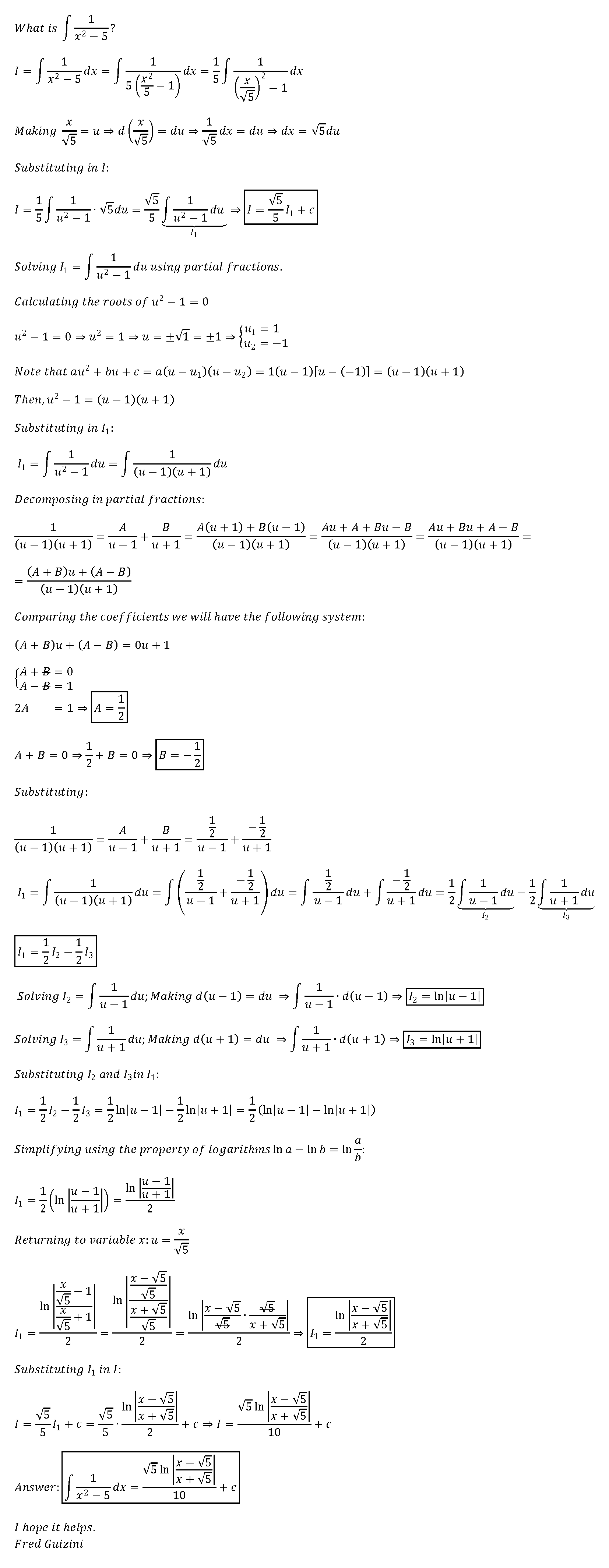What is int1/(x^2-5)?
When I use an online integral calculator, it's suggesting I use substitution and let u=x/sqrt(5)
I don't understand how to get the sqrt(5) . Is there an alternative way of solving this?
If not - what does the sqrt(5) mean and how do I work this out for similar questions?
When I use an online integral calculator, it's suggesting I use substitution and let
I don't understand how to get the
If not - what does the
2 Answers
Explanation:
Now if we set
It is now all set for substitution:
Undo substitution:
Absolute value for the domain.
I use to solve this way:


